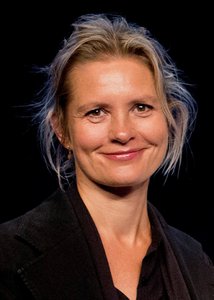Q & A with Lone Fjorback

Director, Associate Professor and Chief Physician at the Danish Center for Mindfulness Lone O. Fjorback, answers questions about next year's International Conference on Mindfulness (ICM2021) "Diversity and equality - leaving no one behind".
Q: Who organizes the conference?
A: The International Conference on Mindfulness takes place every other year in a European country. Next year, the Danish Center for Mindfulness, Aarhus University, hosts the event. A scientific committee with representatives from many countries, chooses the scientific content.
Q: What is the conference theme?
A: The overall theme is diversity and equality. We will look at how mindfulness could help reduce inequality and conflict and strengthen health and well-being in line with the UN Sustainable Development Goals. Unfortunately, more and more people experience social, health, and racial inequality. At the same time, in Europe and other developed countries, people live in fear with increasing mental health problems.
There will be four scientific tracks:
- Mechanisms of mindfulness and compassion
- Mindfulness and compassion in healthcare
- Mindfulness and compassion in education
- Mindfulness and compassion in business and politics
Q: Who should participate?
A: I hope that everyone who is interested in developing a sustainable world, where more people will be able to thrive and be a part of a community, attends. It is a scientific conference, where the newest research on mindfulness and compassion in healthcare, education and society is presented and discussed, so of course researchers and experts in the field are a primary target group. But others with an interest in the subjects of mental health and well-being, and the use of mindfulness-based interventions will hopefully attend.
Q: What can you experience?
A: The conference will reflect diversity in nationality, ethnicity, and ideas, welcoming research contributions from around the world. Participants will learn about new developments within the areas of mindfulness and compassion and will also be able to experience mindfulness as literature, music, dance, and films during the event. We hope to make good use of Aarhus as one of the world's most highlighted travel destinations right now. And June is a perfect time to visit!
Q: What do you hope will come out of the conference?
A: My hope is that the conference will help make mindfulness and compassion more accessible to people around the world. This will only happen, if researchers, policy makers, and experts cooperate internationally.
Q: What do you think is the most exciting development in mindfulness research today?
A: I spent many years as a mindfulness researcher, teacher and teacher-trainer. Today, there is enough evidence-based research that mindfulness should be implemented in health, education and other policy areas. Some countries, such as England and Holland, have come a long way. But many more - including Denmark - should follow. This is important, as the number of people suffering from mental illness and disease continues to grow.